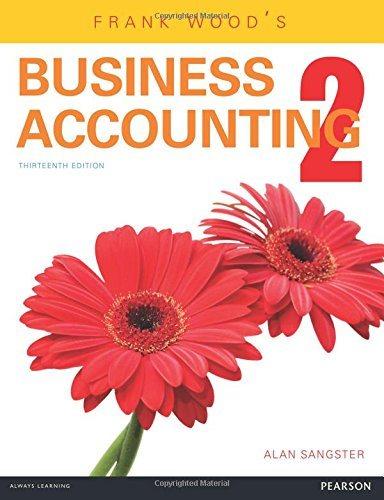Question
At the time of his death in 2018, Howard was married to Bella for over 40 years. Howard and Bella had two adult children (Max
At the time of his death in 2018, Howard was married to Bella for over 40 years. Howard and Bella had two adult children (Max and Bertha). Max and Bertha each have their own children (Howards grandchildren)
When Howard died in 2018, in addition to his $8.5 million of certificates of deposit and investment property worth $4 million, the following facts were disclosed by the executor:
a) In 1975, Howard decided to see what kind of fiduciary the Bank of Georgia would be for his assets. However, he did not want to establish an irrevocable trust because the fiduciary might not perform up to expectations and he might need the property later for his own retirement needs. Consequently, Howard established a revocable trust funded at $300,000, but the fair market value at death was $700,000. The trust terms gave income and principal distributions (in the trustees sole discretion) to Howards children Max and Bertha for their lives. At the death of the second child, the trust then provides for mandatory distributions of income to Howards grandchildren for their lives. The trust will terminate after the death of Howards last grandchild and all remainder interests are held by Howards great grandchildren. At Howards death, the trust became irrevocable. At Howards death, both Max and Bertha were alive.
b) In 2006, Howard made a taxable gift of $100,000 to his daughter, Bertha. Due to the unified credit, Howard did not incur any gift tax. Prior to 2006, Howard made no taxable gifts.
c) In 2007, the revocable trust distributed a total of $1.2 million to Max and Bertha. This was the only distribution made from the revocable trust.
d) In 1983, Howard purchased a paid-up life insurance policy with a face value of $300,000 payable at death to the executor of the estate to use against any estate taxes that might be due.
e) In 1981, Howards mother left him with a power of appointment over a trust valued at $215,000 at the date of death. Howard could exercise the power in favor of himself, but subject to a standard requiring exercise for his own comfort. Howard did not exercise this power and, at his death, the property was transferred to his brother in accordance with the trust documents.
f) Funeral expenses were $30,000 and the estate incurred $70,000 of administration expenses.
g) The executor paid $40,000 in state death taxes to the state of Georgia.
h) There were no other liabilities (Howard believed in using cash), and the will gave the executor no other explicit instructions
i) Howard left his wife, Bella, $600,000 outright in certificates of deposit. The amount distributed to Bella was not to be reduced by any expenses of the estate.
j) The residue of his estate was left to his grandchildren
Compute the amount of federal transfer taxes due as the result of the transfers described above. Make sure to discuss any assumptions made in your computation.
Step by Step Solution
There are 3 Steps involved in it
Step: 1

Get Instant Access to Expert-Tailored Solutions
See step-by-step solutions with expert insights and AI powered tools for academic success
Step: 2

Step: 3

Ace Your Homework with AI
Get the answers you need in no time with our AI-driven, step-by-step assistance
Get Started


